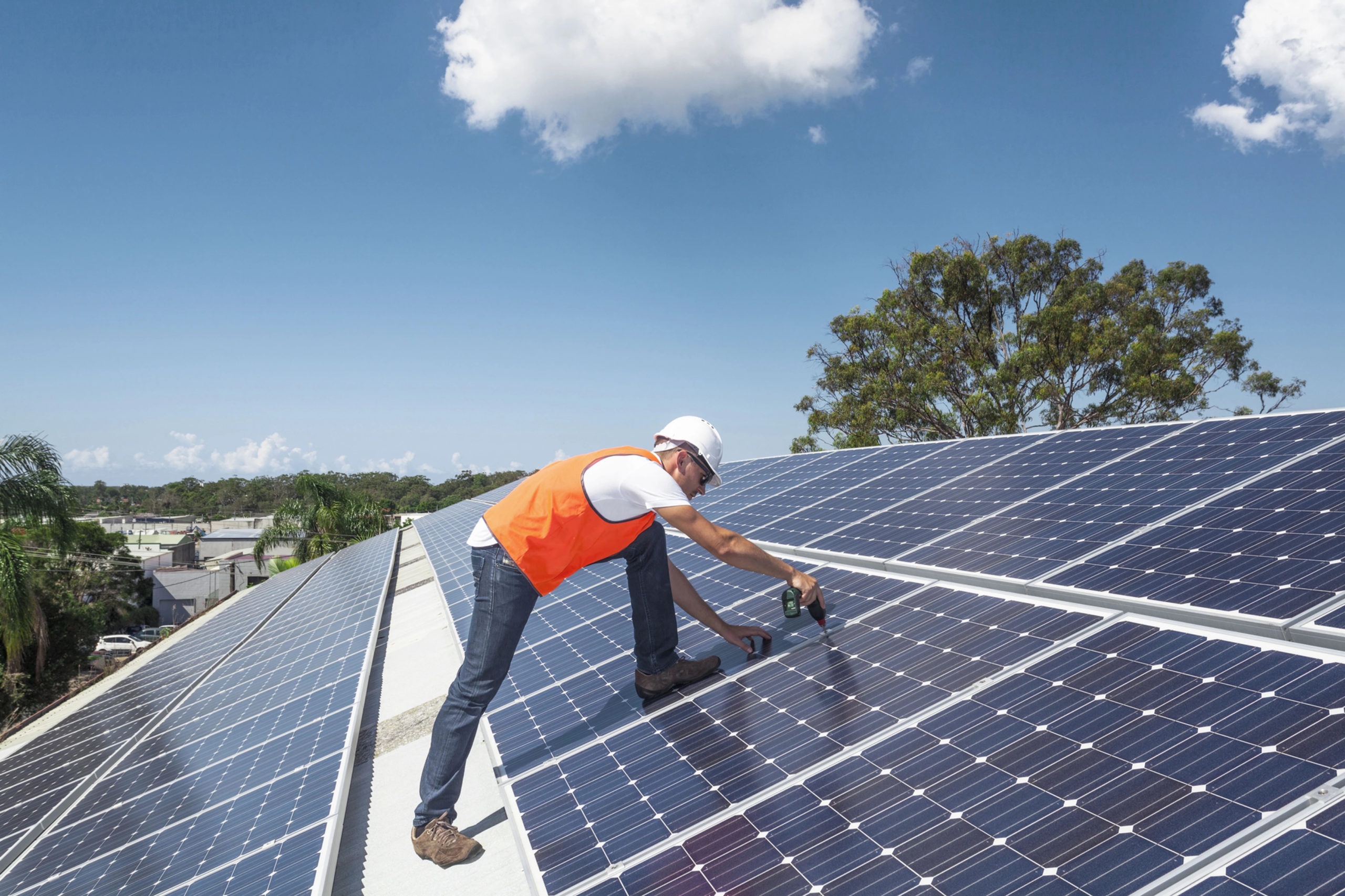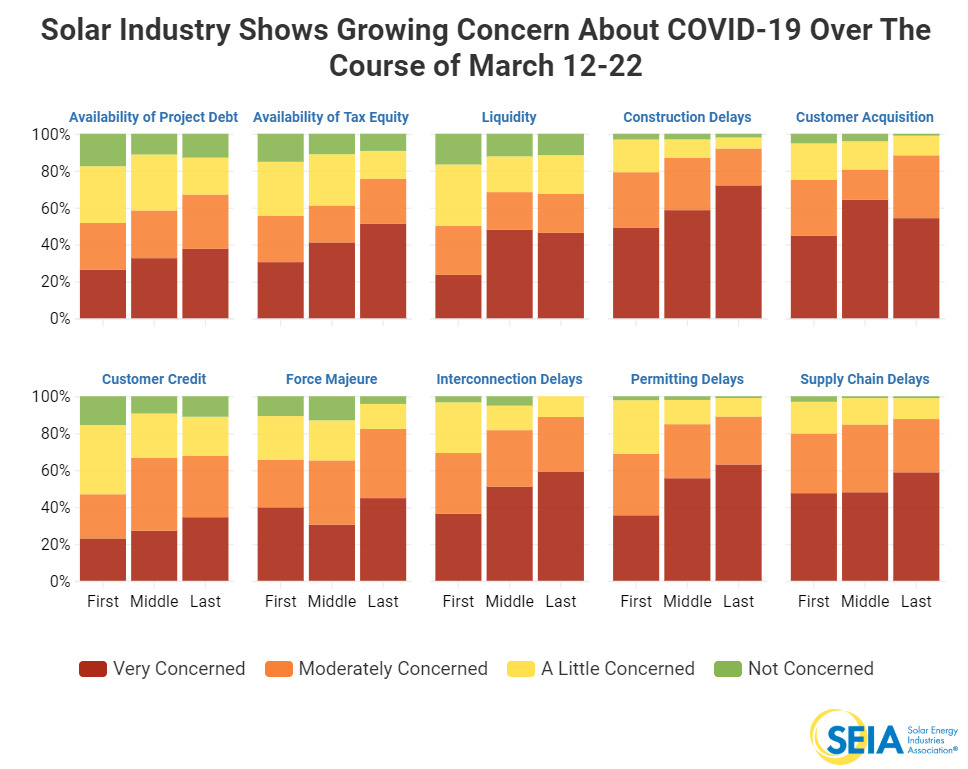Is the Future of Renewable Energy in Jeopardy?

COVID-19 has impacted industries across the globe, and the renewable energy industry is no exception. People are uncertain of the future and holding off making any major investments. “Cancellation rates (19%) and job postponement rates (53%) for residential solar systems are now extremely high.” Many companies and businesses are no different, but others are still moving forward with renewable energy upgrades and installations. Commercial and industrial projects that have been planned for months are continuing to proceed while adhering to social distancing recommendations by the CDC.
Delays Left and Right
As companies continue to try to work through the shutdowns, there has been a large impact on supply chain as similar shutdowns and health concerns keep manufacturers of such products as solar panels and LEDs in East Asia from producing at their max capacity. Companies are seeing delays in shipping and passing through customs with some stemming from the end of 2019.
Further delays develop at the local and state level where governments are focusing most of their resources on medical equipment procurement, medical testing and research, economic relief and preparing for recovery coming out of the COVID-19 pandemic. As such, there has been a halt in growth-stimulating legislature for the renewable energy sector and new tax incentives may be on hold. With this reallocation of resources, there are less incentives for companies to continue their renewable energy goals.
Concern in the Industry
Companies looking to save their money, governments focusing their efforts elsewhere, and supply chain delays have resulted in an obvious negative effect on renewable energy companies. A SEIA survey shows rising concerns from solar industry representatives towards their ability to continue business growth. The major concerns of customer acquisition, permitting, interconnection, supply chain, and construction delays are to be expected. But these delays may force companies to miss deadlines to use tax credits and even freezing.

The pandemic has also staggered the renewable energy industry job growth in the United States. Over the course of 2019, the job growth in renewables was 3.2%. However, all that progress was lost in March 2020. The impact has been felt all over the industry with less people able to install and work construction. With the governments of the world working to prepare for the recovery stage of this pandemic, there will need to be serious consideration for legislation to help the renewable energy industry—especially if they want to effectively transition from fossil fuels to meet global sustainability goals.
The Light at the End of the Tunnel
Even with all the challenges facing the renewable energy industry, there are positive signs for the future of the industry. Fossil-fuel energy production has taken a large toll from COVID-19 but also from failed negotiations between Saudi Arabia and Russia. The fallout dealt a death blow to energy prices. With these challenges to the energy market comes a need to support the energy production infrastructure coming out of this pandemic.
Work is underway in Washington to provide this support, but it will be challenging to balance the needs of each industry in such a deal. While a bipartisan infrastructure deal is very difficult to achieve, the industry “wants to be a key economic driver to help the nation through this downturn, as well as an effective climate solution over the long haul.” The International Energy Agency (IEA) is also pushing to have renewable energy on the forefront of these recovery packages, working with governments around the world.
Across the Atlantic in Europe, overall energy demand has decreased significantly as a result of this crisis. Interestingly, fossil fuel generation has seen a greater drop than renewable energy generation. Coal-based power generation has fallen by 25.5% across the EU and UK in the last three months of 2020 compared to 2019, and the share of renewable energy has risen to 43%. Despite previous concerns, the existing infrastructure has been able to cope well with the greater share of renewable energy so far. With this success, it could mean that more people will trust the reliability and value of renewable infrastructure in the future, accelerating its integration into the energy mix.
The renewable energy industry is facing unprecedented challenges with COVID-19, but there are some positive signs to take away. A large share of renewable energy systems has performed above expectations and taken a larger role in energy production in Europe. With the proper support from governments, it is possible for renewables to do the same in other regions. New and improved tax incentives coupled with legislation can promote growth opportunities in the US, saving the jobs and livelihoods of workers in the industry. The future of the world will look different after COVID-19 and the renewable energy industry is likely to capture a larger share of the energy production market as it supplements coal’s shortfalls.
